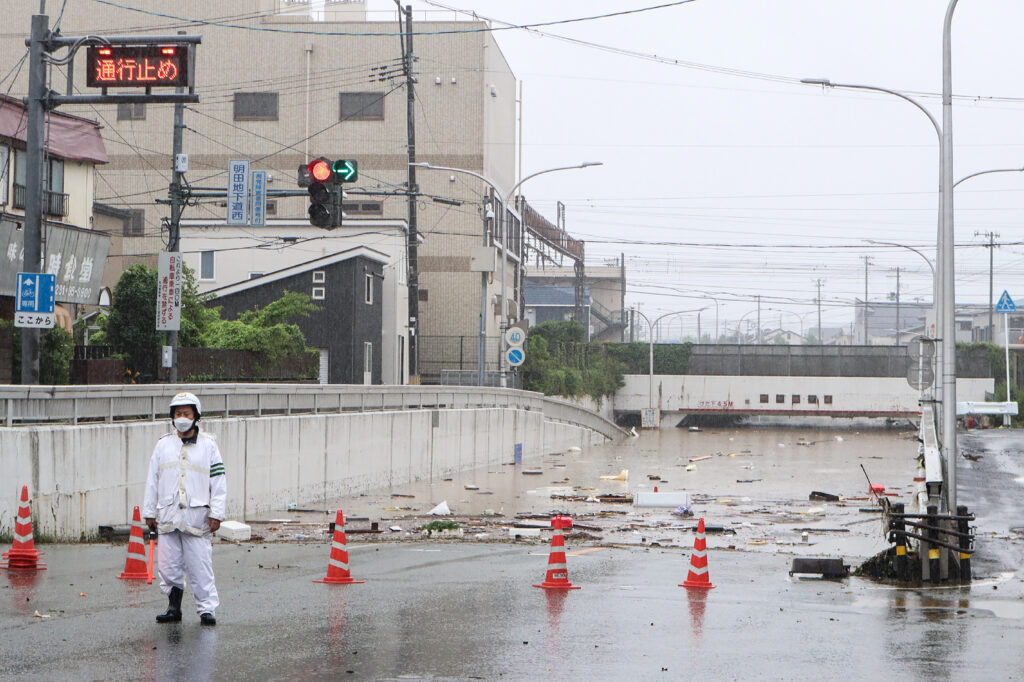
- ARAB NEWS
- 04 Jul 2025

Akita: Collecting disaster debris, such as tatami mats and furniture, has been a challenge for Akita a month after torrential rains flooded a total of more than 5,000 houses and other buildings in the northeastern Japan city.
The Akita municipal government is responding partly by suspending collection of recyclable waste, but it remains to be seen when the problem will be resolved.
In the city’s Narayama district, many houses were inundated as the Taihei River overflowed. Although work to collect flooded items is making headway gradually, disaster debris is piling up at vacant lots.
“Debris collection was slow in July, and the smell was getting worse,” said Tomoya Marui, a 42-year-old self-employed man, whose house was flooded up to 1.4 meters above the floor.
The municipal government’s garbage collection was sometimes not carried out as planned, so Marui had to ask his friends for cooperation to transport debris to a makeshift storage site.
Debris including tatami has been left in front of the house of therapist Yoko Moriya, 60, who lives with her aged father, since the outbreak of the disaster although furniture and other waste have already been collected.
“Considering hygiene, I want the debris to be taken away as soon as possible,” she said.
“The delay in debris collection is hampering postdisaster reconstruction,” said an official of the city’s social welfare council.
In order for residents to continue living in a house that was flooded above floor level, the mud under the floor needs to be removed and disinfection should be conducted. But disinfection work cannot be done unless the debris in the house is removed.
An official at a city government division in charge of collecting disaster debris pointed to a manpower shortage due to the large amount of debris.
The city is set to suspend recyclable waste collection again from Monday to focus on collection of disaster debris. But the official said, “We have been unable to figure out the total amount of debris,” indicating that it is unclear when the disaster debris collection work will finish.
To support postdisaster reconstruction, Peace Boat Disaster Relief, a private-sector group based in Tokyo, set up a base for its activities in the Narayama district on Aug. 4. In cooperation with the city’s volunteer management center, the group is using trucks to collect debris from houses struggling to dispose of waste.
The reconstruction base is also distributing drinking water and instant noodles free of charge and offering consultations and advice on daily life to affected residents.
“We hope the venue will help relieve affected people of their anxiety and stress, and reduce their burden, even if only slightly,” Sayaka Oshio, 41, who works as coordinator at the reconstruction base, said.
JIJI Press